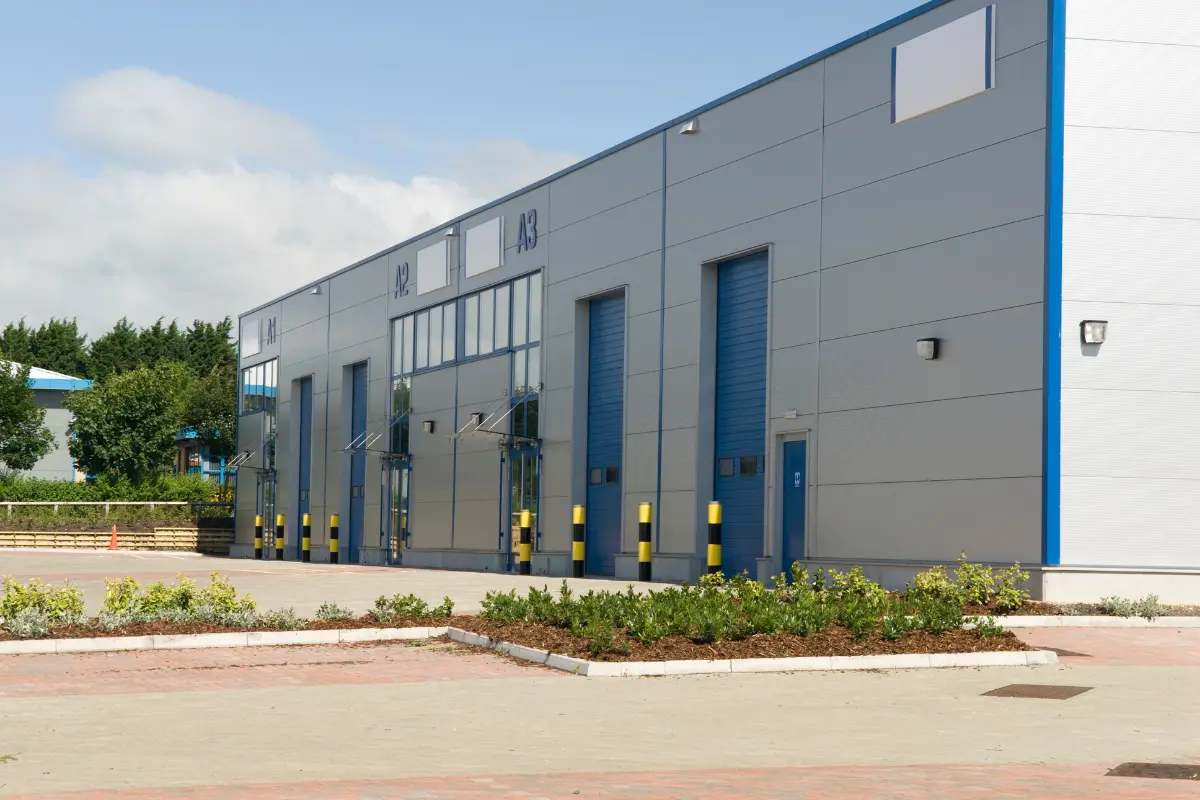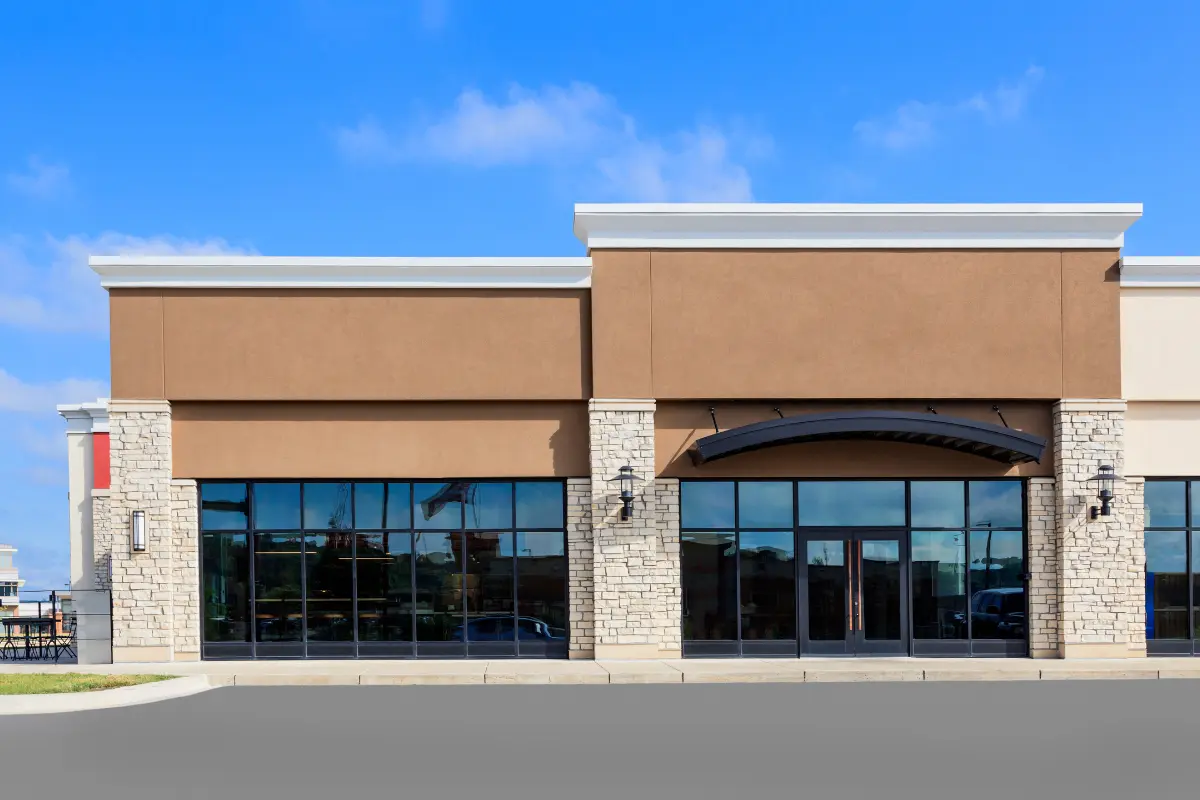
Last year, I had the pleasure of discussing the intricacies of commercial real estate on the “Two Drunk Accountants” podcast, where I was able to share my expertise as a buyer’s agent.
Listen To The Podcast Below:
Commercial property is a market filled with opportunities yet riddled with factors that impact your overall success. Knowing the landscape is important whether you’re a seasoned professional or just starting in this field.
This blog serves as a comprehensive commercial property buying guide, where I’ll share insights and tips I’ve gathered over the years to assist in purchasing commercial properties.
Commercial Property Types
As a prospective purchaser, you should be aware of the three main categories of commercial real estate: office, retail, and industrial spaces. Each type serves a distinct purpose and caters to different business needs. Here’s a brief rundown:
- Industrial: typically utilised for manufacturing, storage, or distribution. Think warehouses or factories. They’re often located outside urban centres and are characterised by their functional design, large open spaces, and, sometimes, specialised facilities like high-power electrical systems.
- Office: designed for administrative work and business operations. From small office units to large corporate buildings, they vary greatly in size and layout. The demand for flexible office spaces is rising in today’s evolving work culture.
- Retail: Retail properties are all about location and foot traffic. These spaces are designed to attract and serve customers from small shops to large shopping centres. Usually, they are found in high-visibility and easily accessible areas.
Choosing the Right Type for Your Business
How do you decide which type of commercial property is right for your business? Here are some factors to consider:
- Nature of Your Business: The core activities of your business will largely dictate the type of property you need. A manufacturing business naturally leans towards industrial spaces, while a consultancy firm would look at office spaces.
- Location Requirements: Consider where your customers are and how easily they can access your business. Retail businesses thrive in high-traffic areas, whereas industrial operations might prioritise space and accessibility for heavy vehicles over foot traffic.
- Growth and Scalability: Think about the future. Will the space accommodate your business as it grows? Flexibility and the potential for expansion are key considerations.
- Budget Constraints: Your financial capacity will significantly influence your decision. Different property types come with varying price tags and operational costs.
- Legal and Zoning Regulations: Every property type has its own regulations. Ensure the property you’re eyeing complies with local zoning laws and is suitable for your intended use.
Key Considerations for All Commercial Properties
Car Parking and Accessibility
For retail spaces, ample parking can be the difference between a thriving business and one that struggles to attract customers. In industrial and office settings, think about your employees and delivery vehicles.
Accessibility isn’t just about cars; it also includes public transport options and easy access for people with disabilities. Remember, a property that’s easily accessible increases its appeal and value.
Signage
Effective signage enhances visibility, reinforces your brand, and drives impulse visits. Never underestimate the power of a well-placed sign, whether a big storefront sign in a shopping mall or a slick directory listing in an office building.
Security and Power Requirements
These are critical yet often overlooked aspects. Security measures protect your property and provide peace of mind to tenants and customers. And when it comes to power, different businesses have different needs. From standard power outlets in an office to high-capacity electrical systems in industrial properties, ensuring adequate power supply is essential for the smooth operation of any business.
A Look into Specific Commercial Property Types

Each type of commercial property has its own unique considerations. Understanding these nuances is key to making an informed investment decision.
Industrial Properties
Industrial properties are often the backbone of manufacturing and logistics operations. When considering these, pay close attention to strata bylaws. These regulations can significantly impact the types of activities you can undertake. For instance, certain bylaws may restrict ‘dirty’ activities like heavy manufacturing, which could be a deal-breaker for some businesses.
Access is another critical factor. The property needs to be easily accessible for heavy vehicles, especially if you’re in manufacturing or distribution. Check for adequate ingress and egress points to ensure the smooth operation of large vehicles. Also, consider the internal features like roller door height and the possibility of installing mezzanine levels for additional storage or workspace.
Office Spaces
In today’s digital age, IT infrastructure is the lifeblood of office spaces. Ensure the property has robust internet connectivity and the capacity for future technological upgrades. This aspect is non-negotiable, as a week without internet can cripple a business.
Space for growth is another vital consideration. Can the property accommodate your business as it expands? Flexibility is key.
Also, inclusivity is increasingly important. Features like wheelchair access comply with legal requirements and demonstrate a commitment to diversity and inclusivity.
Comfort features such as air conditioning are also vital as it can be costly to install a new system or repair an old one that’s not working correctly.
Retail Spaces
For retail properties, visibility is king. Signage plays a crucial role in attracting foot traffic and enhancing brand visibility. The property’s frontage – its size and visibility from the street – can greatly influence customer traffic.
Zoning is crucial for retail spaces. Ensure the property’s zoning aligns with your intended use. For example, converting a clothing store into a restaurant might require significant changes due to different zoning requirements.
Lastly, consider the specific fit-out needs of your business. Does the property have the necessary infrastructure for your type of retail operation? It could be anything from fitting rooms in clothing stores to restaurant grease traps.
Market Trends and Demand in Commercial Real Estate
The rise of remote work has significantly impacted the demand for office spaces. The traditional model of a fixed office is giving way to more flexible arrangements. Businesses are now re-evaluating their need for large, centralised office spaces, leading to an increased interest in smaller, more versatile office environments. As a buyer, understanding this trend is vital for selecting office properties that align with contemporary work practices.
On the other hand, industrial properties are experiencing a surge in demand. The growth of e-commerce and the need for efficient logistics have made industrial spaces more valuable than ever. Warehouses and distribution centres are in high demand, especially those well-connected to transport networks. This trend is a clear indicator of the robustness of the industrial sector in the current market. Considering industrial properties could be a strategic move for investors, given their rising significance in the commercial landscape.
Final Thoughts and Advice: Buying Commercial Property
My foremost advice to potential investors is to never underestimate the power of due diligence. Investigate every aspect of the property, from legal compliances and zoning regulations to potential future developments in the area.
Knowledge of a property’s zoning laws and permitted uses cannot be overstated. These factors can significantly impact the viability of your investment. Ensure that the property aligns with your intended use, and be aware of any restrictions or requirements that may affect your business operations.
Moreover, don’t hesitate to seek professional advice. In my experience as a buyer’s agent, I’ve witnessed the significant advantages that expert guidance can bring to clients. An expert can offer you bespoke insights, assist in navigating the market’s complexities, and ultimately contribute to a more fruitful investment.
If you’re seeking more insights, I encourage you to listen to my full discussion on the “Two Drunk Accountants” podcast. And if you need a buyer’s agent to help steer you through the finer points of this process, please feel free to get in touch.





